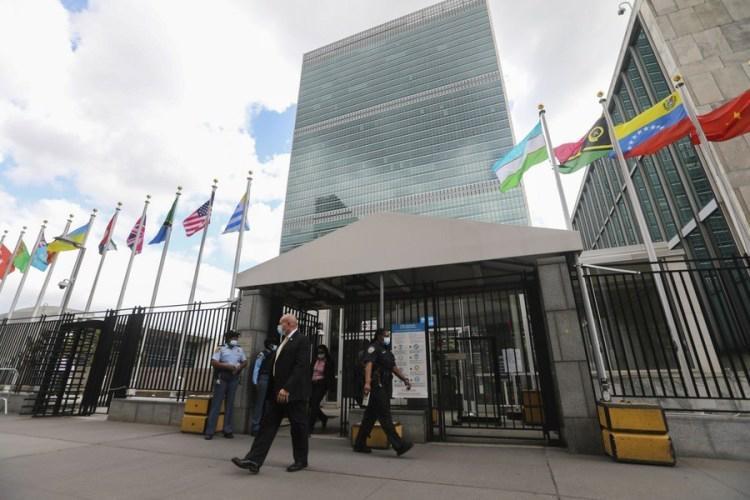
A view of Tian'anmen Square in Beijing, capital of China, October 16, 2022. [Photo/Xinhua]
By Sun Wenzhu
On April 21, 2022, President Xi Jinping proposed the Global Security Initiative (GSI), to construct a global security community with a shared future for humanity. 10 months later, Beijing issued the Global Security Initiative Concept Paper, to explain it in detail. The GSI report highlights 20 priorities of cooperation and five major platforms and mechanisms of cooperation. The Chinese approach targets prominent problems, namely deficits in peace, development, security and governance. The GSI has been welcomed by the international community. More than 80 countries and international organizations have voiced their support.
The GSI states that security is a common right equally owned by every sovereign country, regardless of their size, richness and military strength. The principles rests on a foundation of morality and justice, which stands in sharp contrast with previous security theories that are based on certain structure of capability distribution among great powers, such as the theories of "hegemonic stability" or "bi-polar stability." The idea of security is no longer a privilege owned by certain few countries in monopoly, only bestowing to their client states in exchange for the latter's obedience.
The security of one country should not come at the expense of others. The zero-sum or Cold War mentality is a source of insecurity, and exposes the hypocrisy of unilateralism in security affairs, as well as the paradox of "collective security," which enhances the absolute security within a certain faction or group, treating national security as a kind of "club membership," to achieve security by enlarging their superiority of military capabilities so that any "hostile" move might be "deterred," yet ignores the security of those outside the group gets undermined, thus deteriorated the security environment. The whole history of the 20th century has demonstrated that such power rivalry would only bring antagonism, division and confrontation, becoming recipe for global instability, and damage global peace.

The UN headquarters in New York, September 20, 2021. [Photo/Xinhua]
Global security should be protected by a real multilateral approach, which remains open and inclusive, instead of "mini-lateralism" based on political ideologies. The GSI upholds the authority of the UN as the main platform for global security governance, and calls for global effort to enhance the UN capacity for international peacekeeping, fighting against terrorism and transnational organized crime, as well as drawing blueprints for future global security cooperation. Meanwhile, the GSI argues that major countries should take their responsibilities for global stability by adhering to peaceful coexistence, especially in the area of international nuclear strategic stability. The GSI also emphasizes the constructive role of regional organizations, such as the African Union, ASEAN, and League of Arab States in dealing with regional hotspot security issues and maintaining regional stability.
The GSI takes a holistic approach for security in both traditional and non-traditional domains. The meaning of security has already gone far beyond the domain of international relations. In order to achieve comprehensive and sustainable security, every country needs to deal with challenges proposed by non-state factors, such as terrorism, climate change, food and energy shortage, the disruption of international supply chains, cybersecurity and biosecurity problems. These problems can't be solved without concerted efforts of all relevant countries. Countries need to explore specific security solutions and to cooperate with each other to update international laws for sustainable solutions.
Additionally, the GSI believes Chinese wisdom can help to overcome disputes between countries by peacefully resolving such concerns through dialogue and negotiation. There's no winner out of war. To avoid the sufferings of civilians and the damages to their lives and properties, the international community should promote the political settlement of hot-spot issues including the Ukraine crisis, keeping in mind that no simple solutions can be found for a complicated problem, and only a fair and practical attitude based on the merits of the specific issue and respects the legitimate security concerns of all parties may lead to common security and lasting peace. China stays firm on the side of peaceful dialogue for the political settlement of the Ukraine crisis. The attempt of the U.S. and some of its allies to protract the Ukraine crisis so that it may serve as a leverage of geopolitical confrontation is unproductive for peace and security.
As the one and only country who writes "peaceful development" into its constitution, China is going to stick to its role as a guardian of world peace. With the GSI as a flag of direction, more countries should join China to maintain real and lasting security and peace for the whole world.
Sun Wenzhu is an associate researcher of the China Institute for International Studies.

 中文
中文



